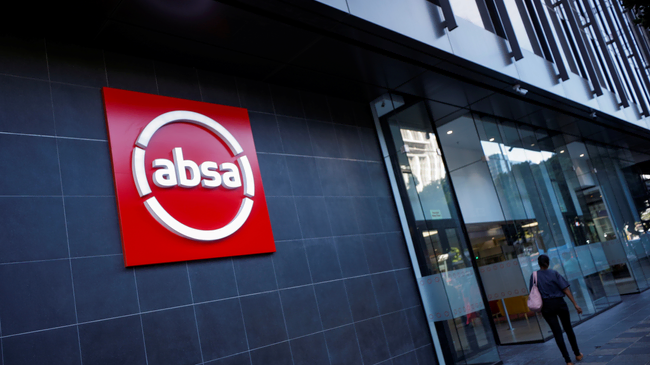ABSA and First National Bank (FNB) have been accused of perpetuating apartheid era tactics in South Africa’s embattled financial services sector.

DURBAN - ABSA and FNB have been accused of perpetuating apartheid era tactics in South Africa’s embattled financial services sector.
Industry experts and political parties have raised these concerns after accounts belonging to black-owned businesses continue to be closed “with impunity”.
Black-owned businesses and scores of ordinary South Africans, according to various analysts, have found themselves at the receiving end as banks in the country perpetuate what they described as ‘weaponized apartheid era tactics’ through financial exclusion of black people in the banking sector.
In an exclusive interview at the weekend, private financial consult and investigator Emerald Van Zyl said the apartheid tactics were in full swing and black people as well as their businesses were viewed as a ‘risk’.
He claimed they were either overcharged or shut down, disabling them from participating in the economy of the country.
“It is disappointing that banks are involved in such horrific crimes of apartheid tactics. They are deliberately sabotaging blacks. These are pure patterns of apartheid in motion,” said Van Zyl.
According to Van Zyl, letters have been written to government officials exposing banks for their discrimination on black people. He added that he has since taken FNB to court for its “racist discriminatory treatment.”
Director and Research Head at Firstsource Money and founding executive board member of London-based Monetary Reform International, Redge Nkosi said it was unimaginable that banks were closing accounts of individuals or firms that depend on them for their real economic activities.
“These institutions are supposed to fulfil the ‘financial inclusion” purposes of society; a very important mission for the government. The only time I expect them to close accounts is when an account holder poses significant risk to both the bank, its shareholders and the public purpose for which they serve, e.g. some fraudulent act that places both the bank and the public in some danger. If the practice of closing accounts is viewed by the general public as one that is rather troubling, such an act could deter well meaning firms or individuals from engaging in any meaningful business venture (investment) for fear of a bank or banks closing their accounts for reasons that are more political than anything else,” Nkosi argued.
Nkosi added that the South African banking system was oligopolistic in nature and thus tends to act in “concert’.
This is the challenge researchers or academics see in the banking system and that was why calls for the diversity of banking systems and models were being loudly made.
“It is common knowledge that SA banks are discriminatory in their practices. They do, obviously, not accept this but many people have proven it. But they also exert considerable influence over a number of issues in the economy that are in many ways political in tone,” Nkosi said.
On Thursday AYO Technologies communicated to its shareholders that the company received notice from FNB on the closure of its transactional accounts and that it had since launched legal proceedings against the bank.
The move to close the company’s accounts became a heavy subject of criticism by business organisations and political parties slamming FNB’s decision to shut down the accounts of AYO Technologies. There are more than 2 000 people employed by the company whose jobs are on the line.
Nadiah Maharaj, FNB’s chief risk officer confirmed the bank has given reasonable notice to terminate its banking services to Ayo Technologies, but would not provide any further details.
Political parties also entered the fray, accusing the country’s banking sector of being hellbent on destroying black-owned, progressive businesses that were not connected to the political elite.
The African Transformation Movement (ATM) also expressed shock and dismay at the Absa and FNB move, which it said was unwarranted.
Through its spokesperson Sibusiso Mncwabe, the party said the banks had not provided tangible evidence of wrongdoings against Ayo and other associated companies.
“They (banks) have not shown us an outcome of investigations, which shows that there is money laundering. But we have got serious scandalous cases of Steinhoff, but Steinhoff is still operating as normal as we have not seen its accounts being cancelled while billions of rands of pensioners were lost,” said Mncwabe.
The ATM questioned criteria, which the banks used in targeting certain companies in which law enforcement agencies were not involved to prove wrongdoings.
“We would be glad to get more from FNB and Absa that there is valid evidence, there are corrupt activities, there is money laundering in the accounts, and how does that affect the banks’ business image. We don’t know where the banks source the information that led to their decision,” said Mncwabe.
The National Freedom Party (NFP) also lashed out at the two financial institutions, saying their action called for the establishment of a state-owned bank.
NFP MP Ahmed Munzoor Shaik-Emam said what the two financial institutions did was an example of how the private sector monopolises the country’s economy.
“Our people will always be under the mercy of these few people that control the entire economy including the financial sector. There is absolutely no evidence; they have given no good reason why they are closing the accounts. This calls for government intervention, it calls for the South African Reserve Bank (Sarb) to intervene in this matter, and the NFP condemns with the contempt it deserves the attitude of the financial institutions, the monopoly and control they have over the economy in South Africa,” said Shaik-Emam.

